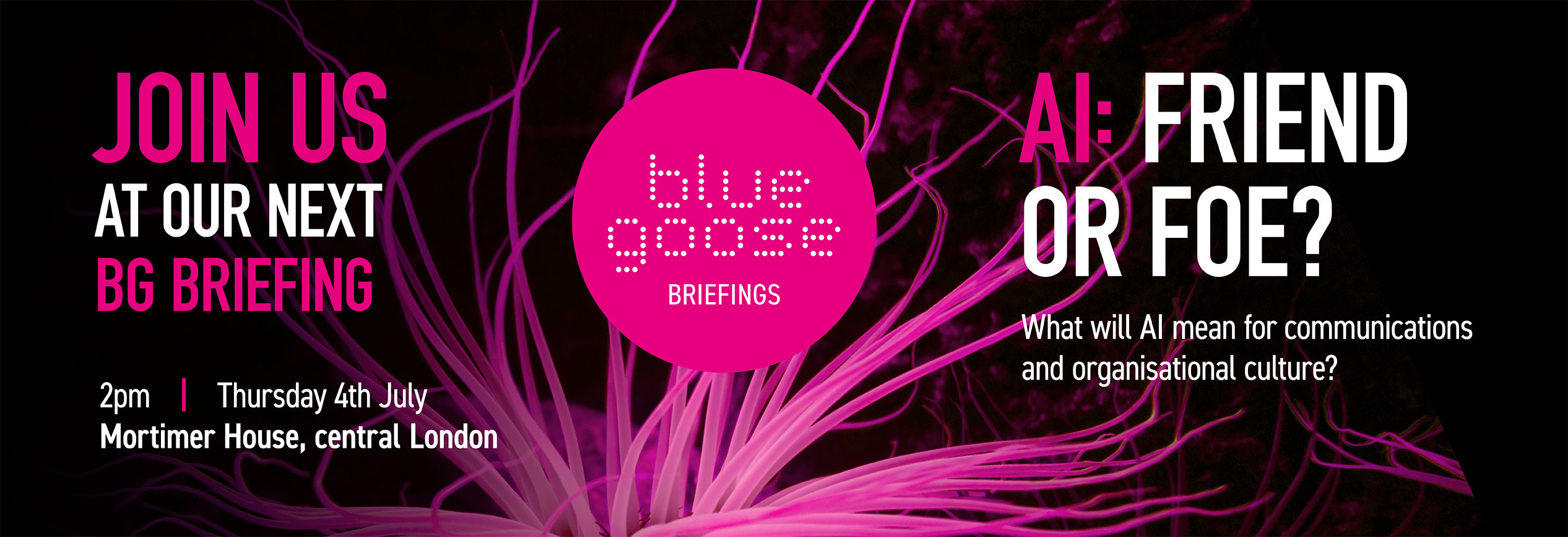This year’s Edelman Trust Barometer serves as a warning to businesses and leaders as it highlights a decrease in trust and increase in grievances across the globe. Impacted by societal, economical and political forces since the global pandemic, Edelman is calling this response a ‘Crisis of Grievance’ as six out of 10 respondents state a moderate to high sense of grievance. The report says there is a belief among those struggling that the system is against them and there is a universal sense that the wealthy are benefitting and businesses only serve a narrow interest.
A drop in trust is perhaps less surprising as it also comes on the back of the IOIC IC Index last year which reported only 23% of employees trust their leadership to do the right thing. Something which blue goose strategist and co-owner, Ben Watson, highlighted in his article at the time about the increasing reliance on managers as key communicators to build trust and how imperative it is for them to be supported by well-founded Values.
‘The new-found importance that these people [managers] are trusted and seen as acting in accordance with the organisational direction is pivotal,’ said Ben.
However, grievances signal a more worrying concern as it can be a result of failures in organisational trust leading to dips in morale and productivity. The report explains grievances stem from four key factors: lack of hope for the next generation; a mass class divide on trust; lack of faith in institutional leaders across business, government and journalists; and confusion over credible information, with 63% saying it’s become harder to tell if news was produced from a respected source or from attempted deception.
‘Business is facing backlash from those opposing its role as a catalyst for societal change,’ said Edelman. ‘Moving back from a grievance-based society will require a cross-institution effort to address issues like information integrity, affordability, sustainability, and the future of AI,’ says Richard Edelman, CEO of Edelman.
‘I think there’s a real battle for truth,’ he added in a recent podcast with Forbes.
‘The mass class divide is reflective of an income divide and the stagnation of wages in the bottom half of the population. And the sense that everybody’s scrambling just to make ends meet. And there’s now this new fear of job loss to AI and I think in this 2025 study, there’s a real rejection of AI unless people can believe in its promise being better than the risk of losing their jobs.’
And for employees to believe in AI they must first trust their leadership and management first as explained in this HBR article.
On the flipside, we know high trust organisations led by high trust people reap the benefits. The founding director of the Center for Neuroeconomics Studies, Professor Paul Zak, conducted research over a decade which showed that high trust teams are 29% happier, 76% more likely to feel engaged and are 50% more productive.
So, with trust in CEOs also dropping to 30% among those with the biggest grievances and the UK and US among the world’s least trusting nations on *Edelman’s Trust Index, what can businesses and leaders do to improve trust in their organisation to head off grievances and its inevitable negative impact on culture and productivity?
Here are five key strategies to build trust among employees
Prioritise Transparent Communication
Transparency is foundational to building trust:
- Share regular updates on company performance, goals, and challenges
- If AI is being adopted, be clear on why and where AI is being used and the benefits not just for the business but your people
- Be honest about setbacks or uncertainties while outlining plans to address them
- Encourage open dialogue by creating forums where employees can ask questions or provide feedback
Lead with Integrity
Ethical leadership is critical for fostering trust:
- Make decisions that align with company values and prioritise fairness
- Hold themselves accountable for their actions
- Demonstrate consistency between words and actions
Invest in employee wellbeing
Employees are more likely to trust organisations that genuinely care about their wellbeing and reflect a diverse range of employees:
- Offer competitive compensation and flexible benefits
- Consider financial wellbeing support for all employees
- Provide mental health resources and support systems
- Promote work-life balance through flexible working arrangements
Foster Inclusivity
A diverse and inclusive workplace creates a culture of belonging where employees feel valued and safe:
- Implement DE&I (Diversity, Equity & Inclusion) programs that are strategic, authentic and go beyond tokenism
- Celebrate cultural differences through events or recognition programs
- Ensure equal opportunities for all employees
Empower Employees
Trust grows when employees feel empowered to contribute meaningfully to their organisation.
- Provide opportunities for professional development through training programs or mentorship
- Encourage autonomy by allowing employees to make decisions within their roles
- Recognise achievements publicly to reinforce a culture of appreciation and rewards
*Five of the largest 10 global economies are among the least trusting nations on the Trust Index: Japan (the least trusting at 37), Germany (41), UK (43), U.S. (47) and France (48).
Image credit: Alex Green




